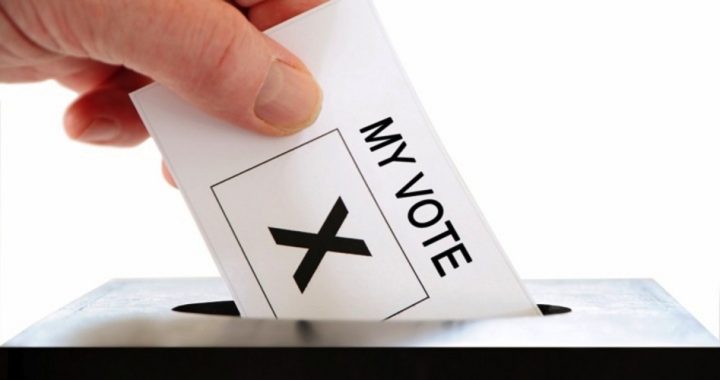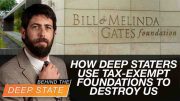
Two men and two women were sentenced Monday in St. Joseph County Superior Court in South Bend, Indiana, for their part in a 2008 scheme that used forged signatures to put then-presidential hopefuls Barack Obama, Hillary Clinton, and John Edwards on the ballot in the 2008 Indiana Presidential Primary. The two women entered guilty pleas and the two men were found guilty in a jury trial April 25.
A spokeswoman at the clerk of courts office told The New American details of the sentences:
Owen “Butch” Morgan, former chairman of the St. Joseph County Democratic Party, received a group of concurrent sentences, the longest being four years. Two years of these were suspended. Of the remaining two years, one year will be in prison and one year of direct commitment.
Dustin Blythe, former employee of the St. Joseph County Voter Registration office, received a group of concurrent sentences, the longest being four years. All four years were suspended. He will be under the authority of St. Joseph County Ducomb Center for one year.
Beverly Shelton, former employee of the St. Joseph County Voter Registration office, received a group of concurrent sentences, the longest being four years. All four years were suspended. She will serve two years of probation.
Pam Brunette, former employee of the St. Joseph County Voter Registration office, received a group of concurrent sentences, the longest being four years. All four years were suspended. She will serve two years of probation.
Indiana has very complex election laws regarding ballot access with different requirements for different offices. For a candidate to be on the ballot in a presidential primary for a major party, he must have at least 500 signatures in each congressional district. Failure to get 500 signatures in any congressional district means that presidential candidate will not be on the ballot anywhere in the state.
Round-tabling
Numerous other states have ballot petition laws and establishment insiders take advantage of them to suppress non-establishment candidates and minority political parties. The practice of using forged signatures by establishment candidates is so commonplace that it has been nicknamed “round-tabling.” Former Chicago City Clerk and Alderman James Laski described this in his book My Fall from Grace — From City Hall to Prison Walls. Laski described how he and some other government employees, while on the clock for their government jobs, were sent on a political errand to gather petition signatures. It was a cold day, so they soon left the public parking lot and went to one person’s home. He continued,
Once inside his house, we all sat around the kitchen table and took part in a procedure known as “round-tabling,” in which we forged people’s signatures from the polling sheets. We would randomly select names from the different precincts in the 23rd Ward.
This would go on until we filled up all the petitions. It was always best to get five or six people at the table, so we could get a variety of signatures, and in a lot less time.
According to Laski, the degree of scrutiny for the signatures depended on who was in charge of verification. Some people enforced the rules the same for everybody and some would aggressively enforce the rules for non-establishment candidates while barely scrutinizing the signatures for establishment candidates.
This Case Went to Trial
Election fraud is rarely prosecuted. It requires reasonably well-written laws, a competent investigation, a willing prosecutor, and a willing court. If any one of these links fails, no one is charged. As a general rule most defendants, once charged with violations of election laws, plead guilty or no contest. Because of that, little or nothing more is learned about exactly how it was done or who else was involved.
The U.S. Constitution guarantees in Amendment VI that all accused persons “shall enjoy the right to a speedy and public trial.” While this is expressed as a right of accused persons, society as a whole also benefits from this constitutional right because the public learns how a crime was committed. That information enables society to take the correct measures to prevent a recurrence.
One recurring theme in electoral fraud is that it is rarely accomplished by a lone individual. It is usually an organized effort of political party operators working in cooperation with government employees. There is frequently at least one employee at the elections department.
A classic case of this kind of teamwork is the infamous U.S. Senate runoff election in 1948 in Texas. The circumstantial evidence was overwhelming, but those who had the authority to declare the results invalid did nothing. The confession came in 1977. With both Lyndon Johnson and party boss George Parr deceased, election judge Luis Salas felt free to tell his story on KHOU television. Salas said he was part of a meeting with Parr, Democratic Party official Ed Lloyd, and Johnson. Salas agreed to add 200 more votes and said he did it because: “I don’t want to work against the party.” Larry J. Sabato and Glenn R. Simpson wrote in their book Dirty Little Secrets, “Salas admitted that two deputy sheriffs added the extra names to the voter list, at his direction.”
Those working to expose voter fraud are agreed that what is needed is simply more prosecutions of electoral fraud to punish the guilty, identify the hidden participants, and inform the public.



